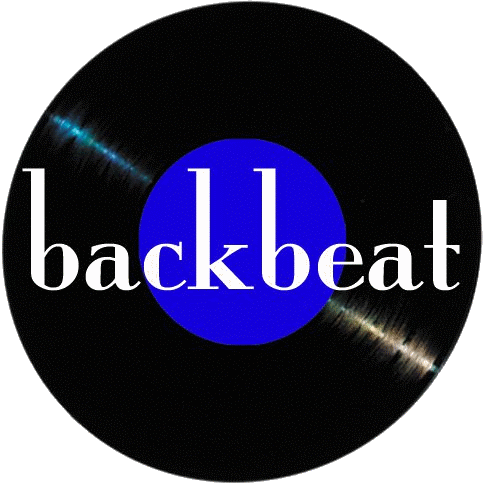It’s a soggy Friday but we’ve got a few recent releases that might just get you through a grey weekend. It’s a diverse mix of albums we are featuring this week including the latest American Football (hey it’s only been 17 years between albums), a fresh release from Black Marble, the latest Hieroglyphic Being has finally showed up (is it August still?) and the much or not so much highly anticipated re-issue from The Shaggs. Seriously, they remastered The Shaggs reissue, was that really necessary?
If you have been popping on the website to check out the used audio gear you may have noticed nearly everything shows up as sold. That is true, we’ve had an incredible demand for the used/vintage gear the past few weeks but we promise we are hard at work getting more out in the shop and on the website soon, so please keep checking in!
Let’s get on to the featured releases!
Hieroglyphic Being – The Disco’s Of Imhotep
Jamal Moss aka Hieroglyphic Being has released his definitive solo album of 2016 – The Disco’s Of Imhotep.
He has built a sterling reputation both as a producer and live performer of deep, mesmeric experimental electronics and free jazz rooted in his native Chicago and his relationship with the city’s fertile underground club scene. Inspired by the likes of Ron Trent, DJ Rush (residents at The Reactor where he danced week in week out) and Ron Hardy, Moss was mentored by visionary producers Steve Pointdexter and Adonis, who showed him the drum machines that were the backbone of the Movement and whom encouraged his early forays into music production.
Releasing prolifically on his own Mathematics Recordings imprint and a clutch of other imprints including RVNG Intl. and Soul Jazz / SOTU; collaborating with Marshall Allen of Sun Ra’s Arkestra and Noleian Reusse (as Africans With Mainframes) – Moss has cemented his stature as a unique creative force. He balances his ancient heritage and musical DNA with a passion to experiment, create and channel music as a healing force, which has resulted in his art being tagged “Afrofuturist”. Moss, however, prefers to describe his output as Synth Expressionism / Rhythmic Cubism and would rather be viewed simply as a promoter of Nubian Rights.
[soundcloud url=”https://api.soundcloud.com/tracks/270170593″ params=”color=ff5500&auto_play=false&hide_related=false&show_comments=true&show_user=true&show_reposts=false” width=”100%” height=”166″ iframe=”true” /]
Black Marble – It’s Immaterial
 Black Marble has released their second full-length, It’s Immaterial. It’s Immaterial follows up their EP Weight Against the Door and highly acclaimed debut full-length A Different Arrangement. Still featuring Chris Stewart at the helm along with select collaborators as supplementation, the project’s recent shift in locale from East Coast to West Coast lends a great deal to the overall feel of the new album: the light and dark elements of shadows, the salt and sting of evening’s high tide sea spray, a beautiful thing left on a shelf too high to maintain. The general mood is that of creating something new, but going back in time to do it. Like attempting to flesh out a song that you woke up humming but can’t find because it doesn’t exist yet.
Black Marble has released their second full-length, It’s Immaterial. It’s Immaterial follows up their EP Weight Against the Door and highly acclaimed debut full-length A Different Arrangement. Still featuring Chris Stewart at the helm along with select collaborators as supplementation, the project’s recent shift in locale from East Coast to West Coast lends a great deal to the overall feel of the new album: the light and dark elements of shadows, the salt and sting of evening’s high tide sea spray, a beautiful thing left on a shelf too high to maintain. The general mood is that of creating something new, but going back in time to do it. Like attempting to flesh out a song that you woke up humming but can’t find because it doesn’t exist yet.
With the end of the East Coast chapter of Stewart’s life on the horizon, It’s Immaterial was recorded in a period of mental and physical transition, trapped between spaces and unable to move on until the snow globe flurry of ideas floating around him settled just right. It’s Immaterial is soaring and muted all at once. It’s a collection of songs pieced together from perfect seeming snippets heard while passing open doors. It’s a framework in which your imagination creates its own version of what you need to hear but didn’t have a way to describe – like a favorite song heard on an unlabeled mixtape by a band you can’t uncover.
[soundcloud url=”https://api.soundcloud.com/tracks/273176388″ params=”color=ff5500&auto_play=false&hide_related=false&show_comments=true&show_user=true&show_reposts=false” width=”100%” height=”166″ iframe=”true” /]
American Football – American Football
Not long after Polyvinyl Records released American Football’s self-titled debut album in 1999, the band called it quits, having only played a smattering of Champaign-Urbana college house parties and sets at small clubs like Chicago’s legendary Fireside Bowl. Such an inauspicious turn of events made what followed all the more incredible. Over time, the record went on to become one of Polyvinyl’s best selling releases to date, and ended up serving as “one of the single most influential rock records of its time” according to Noisey and many others. To most everyone that found them after the fact, the band was no more than an apparition. The record the only artifact left behind as a timeless snapshot of a group of individuals in transition, newly discovered each year by a fresh crop of music fans reaching a similar inflection point in their own lives.
When American Football announced in 2014 that they would play live for the first time in 15 years, the built up appreciation for that eponymous LP physically manifested itself as they sold out 3 nights at Webster Hall in New York City in a matter of hours, and then went on to do the same at venues around the world. A quarter of a lifetime removed, and at times thousands of miles away from the house on the sleepy street in the middle of Illinois depicted on their debut album’s iconic cover, they found themselves playing to sold out crowds that numbered in the thousands in London, Tokyo, Barcelona and beyond.
The again self-titled American Football finds the band with new material that takes them on a serendipitous detour down a familiar road. It is replete with the swelling emotions that might be spurred on by locked away memories unearthed by a familiar scent or crack in the concrete, or the rush of warm apprehension when coming face to face with a lover left before the fire was close to going out. “The past still present tense” sings Mike Kinsella on “Home Is Where The Haunt Is,” but while the house on the cover and the title of the album are the same, they are made strange by time and new found perspective. “We’ve been here before,” he declares on album opener “Where Are We Now?”, “but I don’t remember a lock on the door.”
[soundcloud url=”https://api.soundcloud.com/tracks/278986607″ params=”color=ff5500&auto_play=false&hide_related=false&show_comments=true&show_user=true&show_reposts=false” width=”100%” height=”166″ iframe=”true” /]
The Shaggs – Philosophy of The World
In 1968, three sisters from Fremont, New Hampshire strapped on their instruments and declared themselves The Shaggs. At that moment begun a peculiar tale that would last far beyond the group’s five-year run. Dot, Betty and Helen (and occasionally Rachel, the fourth sister) played in the group on the insistence of their father, Austin Wiggin Jr., who was convinced they were going to be big. Years earlier, Austin’s mother gave him a palm reading, predicting that her son would marry a strawberry blonde woman, that he would have two sons after his mother died, and that his daughters would form a popular music outfit. The first two became reality, so Austin was certain the third would follow suit.
With pure confidence and his mother’s bold prediction, Austin decided that his daughters would forgo attending the local high school in favor of home schooling interspersed with a strict regiment of instrumental and vocal practice, along with jumping jacks and sit-ups. Soon after The Shaggs would enter Fleetwood Recording studios in Revere, Massachusetts to record their sole album, Philosophy Of The World, a collection of garage rock tunes that balanced charm and discordance in equal measure. Austin would spend most of his savings not only on the session but also on the manufacturing costs to press up 1,000 copies of the album (900 of which mysteriously vanished upon completion).
Throughout the album’s simple truths are revealed through the pen of sister Dot, the songwriter of the band. The rich people want what the poor people got, just as the poor people want what the rich people got. Your parents love you. There is happiness in nearness and sadness in the farness.
The album failed to fulfill Austin’s expectations of rock stardom, though the group remained together until their father’s death, performing frequently at the Fremont town hall and a local nursing home, no further albums were released. That might have been the end of it, until rock band NRBQ discovered a copy at a Massachusetts radio station and re-released it in 1980. Rolling Stone’s reviewer at the time described it as “the most stunningly awful wonderful record I’ve heard in ages”.
Nearly 50 years later, the album ranks among the most polarizing LPs of all time. Some said it was the worst thing ever made. Others felt it was one of the great long players of the 20th century. Frank Zappa famously dubbed the band “better than The Beatles”, while Kurt Cobain placed the album at #5 on his list of Top 50 favorite albums. Original copies of the album fetch thousands of dollars.
Decades later and one could argue that maybe Austin was right all along. We’re all here, still enthralled by the purity of The Shaggs.
That’s it for this week. We hope you drop in soon!
Hubba Bubba






